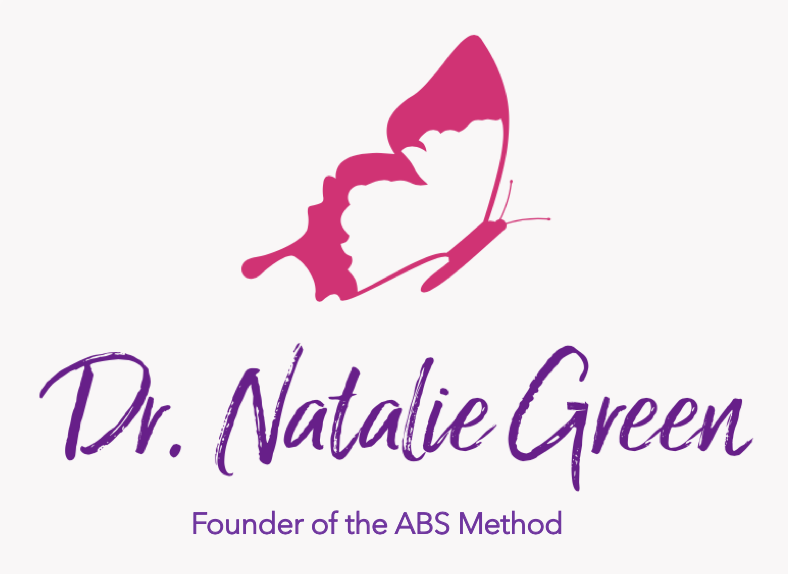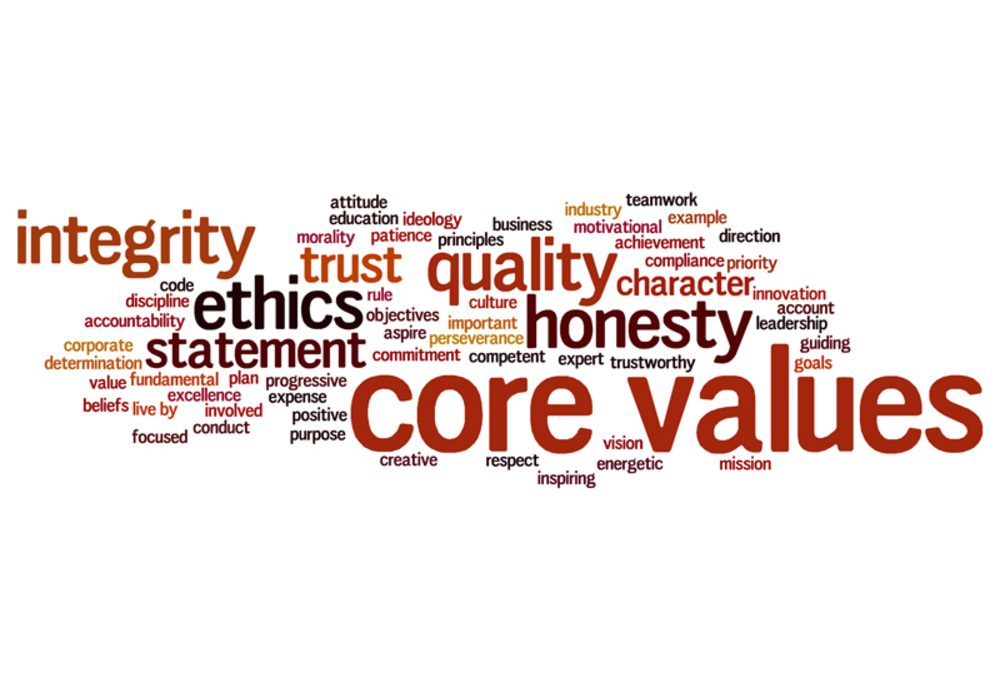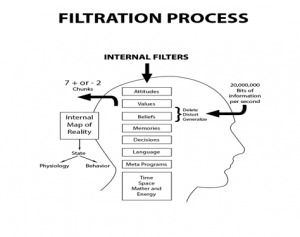How often do you see people experience the exact same event, yet interpret it so differently and respond in completely different ways ?
This is never more evident than in the case of trauma. People can experience the exact same event, see the exact same things, be at the same degree of risk, yet have completely different stories to tell and report totally different impacts on their life.
Let me explain to you, as simply as possible why this is so….
We all see / experience the event and the information from the event flows into our brain where it is filtered through our individual, internal filter system.
This system has multiple levels and layers and includes our attitudes, beliefs, values, meta-programs and memories and will ultimately determine how specifically we choose to behave !
Of course it is based on our own life experiences and as a result no two individuals will experience an event in exactly the same way.
Knowing how this model of communication works makes a huge difference, as when we understand these and know all of this happens at an internal (mainly) unconscious level we can begin to understand that if we want to behave differently then we can target specific components of our internal filter systems, bring them into more conscious awareness and change our behaviour, and subsequently the outcome !
This model of explanation comes predominantly from the field of NLP and was developed by Tad James and Wyatt Woodsmall (1988) based on the work of Richard Bandler and John Grinder (1975) and also draws heavily on concepts from the field of Cognitive Psychology and the groundbreaking work of linguistic analysts Alfred Korzybski (1933) and Naom Chomsky (1964).
This model explains how we take information from the outside world and imprint it directly into our own neurology and we filter it and this in turn impacts our thoughts, feelings and behaviours.
As we know, the world is a very busy and complex place and there is constantly information coming at us, initially at a rate of what was thought to be about 4 million bits per second, though now it’s moreso been found to be at approximately 20 million bits per second. The vast majority of that information gets absorbed and assimilated unconsciously through our five senses. Though, of course our minds cannot possibly process all of this information, therefore it gets filtered by our nervous system and distorted, deleted or generalized based on our own experiences and broken down into about 7 +- 2 chunks of information.
Our filters are unique to each of us and vary from deeply unconscious processes to more conscious ones. It is important to understand exactly what filters we apply to all the information we take in, as then when we recognise our behaviour is less than desired or not getting us the outcome we really want, then we can target any one of these filters at a time and attempt to make some tweaks to alter our outcome so we are more likely to get the outcomes we are truly wanting.
The main internal filters that we apply are these:-
- Values:- These are our principles and standards of behaviour, the things we judge to be important in life and meaningful to us. They’re often known as moral principles or ethics and they serve as a compass for our life. We do not always have conscious awareness of them, rather they tend to be at an unconscious level, and are based on our experiences to date and we just ‘know’ they are meaningful for us. They determine what you consider to be right and wrong, good and bad.
- Attitudes:- these are the values and belief systems that we have about certain things.
- Beliefs:- are what we perceive to be true about ourselves about others and our world. Beliefs support our values.
- Meta-Programs :- These are mental processes or shortcuts that direct our decisions, behaviours, actions and interactions with others. They are internal representations of our external experience of reality. They determine how our brain pays attention and to what things it attends. They are mental programs that run our lives at an unconscious level. In order to make sense of the world around us and to determine how we will choose to behave meta-programs are also another internal filter level our brain needs to work through before we will do something. They are our most unconscious filters and underpin our personality types.
Our internal filters are also impacted by our memories and experiences from our lives as well as the past decisions we have made about who we are and what we are capable of that create our present values, beliefs and attitudes.
Of course when we experience trauma there is a greater likelihood that the distorting and deleting process will be more negatively skewed and impacted by our fight/flight/freeze response and this can have further negative impact on our internal map of reality.
Knowing about this Model of Communication means that you can tweak your beliefs or clarify your values and re-set them to be more resourceful if you continue to engage in behaviour that is not getting you the result that you want. Understanding how this works means that you can actually have more control over how to lead with your own mind and make the decisions you make for yourself.
More fulfilment and greater control over yourself and your life is achieved when you are feeling less affected by circumstances outside of yourself and gaining control of your internal processes. Persistence and consistent review of these components within your internal filters, will in turn lead to you feeling empowered and experiencing freedom.
If you are feeling overwhelmed by an experience or stuck in a negative loop or unhelpful behaviour pattern and feel as though you are struggling to let things go so you can move forward, then I urge you to focus on just one thing this week so you can start to filter things a little differently and it just may be the action you take that changes your behaviour in a more positive way and gets you moving towards the outcome you dream of for yourself.
Action:- This week review which are your Top 10 Values in your life right now ?
These can be based on the things that you placed importance on that used to steer you in the direction you desired but that you have lost touch with, or it can be what you strive for in an ideal world without the issue that is currently keeping you stuck.
Values can be things like Integrity, Family, Happiness, Balance, Love, Respect, Responsibility, Health etc etc
Rank your Values from 1 -10 in order of importance to you, print them out and put them somewhere so you can see them and focus on them on a daily basis until they become ingrained and you are living your values on a daily basis again.



Thanks, Nat, love this post. It makes complete sense!
Thanks Bron, glad it was helpful !